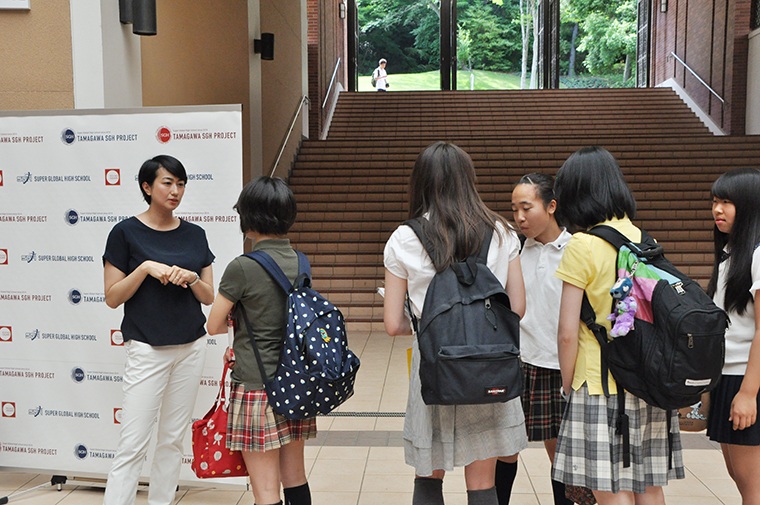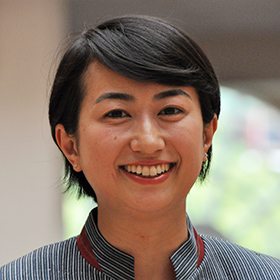As a lunchtime lecture series, the Global Career Lecture Series has become widely familiar to students. Almost all of the 126 seats for the audience were filled again. The theme was “international cooperation.” The lecturer invited was Ms. Reiko Hirai, Programme Adviser from the Secretariat of the International Peace Cooperation Headquarters, Cabinet Office. She talked about her assistance activities in Afghanistan.
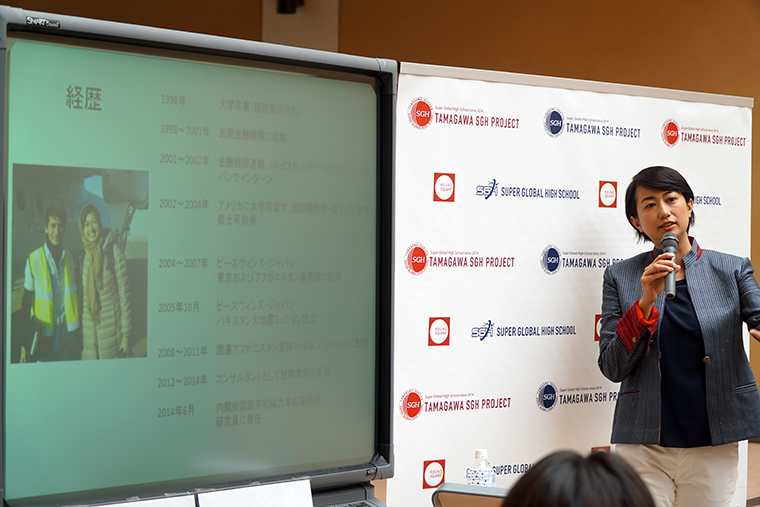
Ms. Hirai began to talk about children whom she met in Afghanistan, where she was dispatched by Peace Winds Japan, which is a Non-Governmental Organization. It was early on in her career in international cooperation.
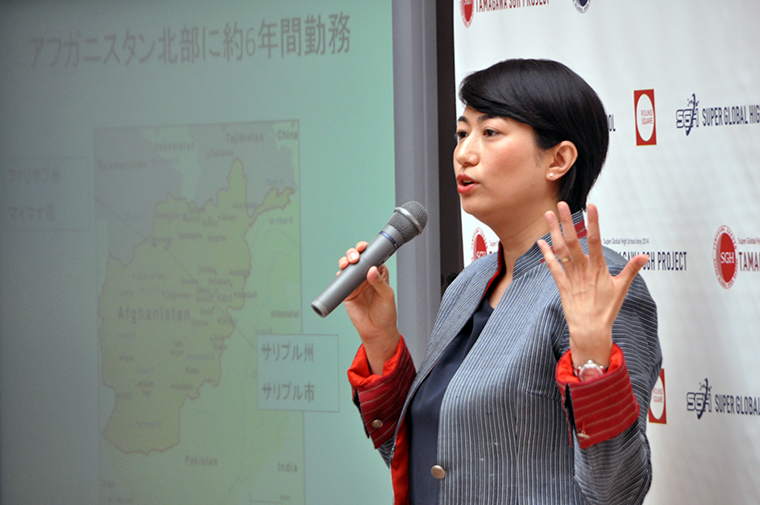
The water supply network in Afghanistan is limited, and therefore, many people are forced to travel long distances to collect water during the dry season. In order to experience firsthand how difficult this chore is, Ms. Hirai accompanied a group of village boys to a water-collecting spot. June in Afghanistan is before the peak of the hot season, but on their departure at nine o’clock, the temperature was already 36 degrees Celsius. After walking under the scorching sun for two-and-a-half hours, they arrived at a tiny spring, which was a mere pool of muddy water.
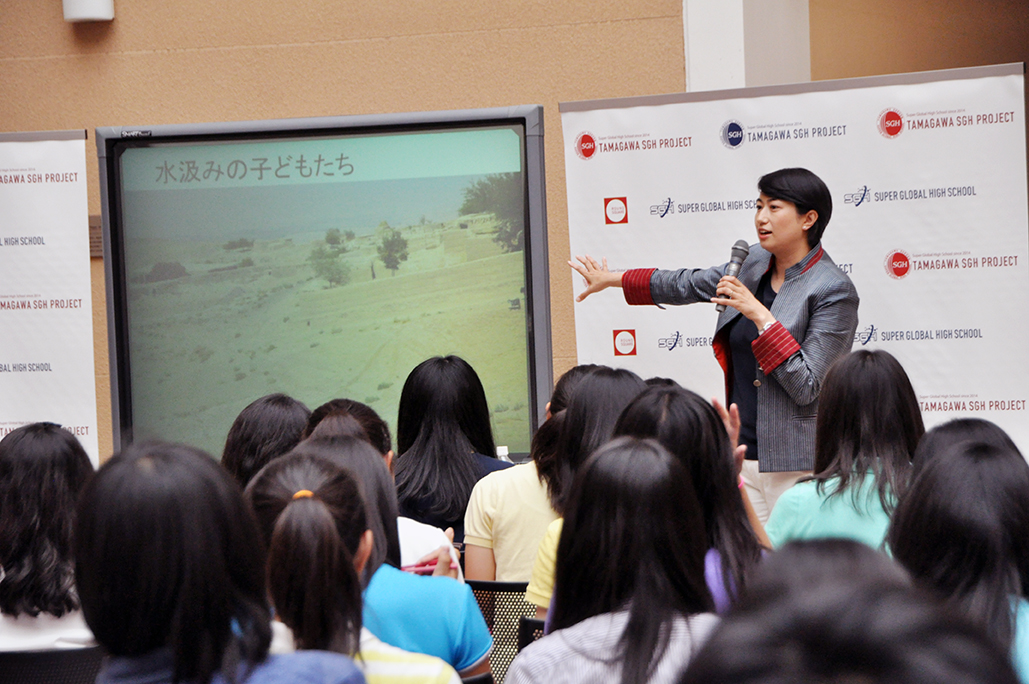
“These children’s families are able to use only 80 liters of water a day. This amounts to only 8 liters per person. How many liters of water do you think the Japanese use per day?” Ms. Hirai asked the students. Some students gave some guesses, but the correct answer “233 liters” was far beyond than their expectation.
This fact gave the students a realization of the stark differences between their living environment from that of Afghanistan.
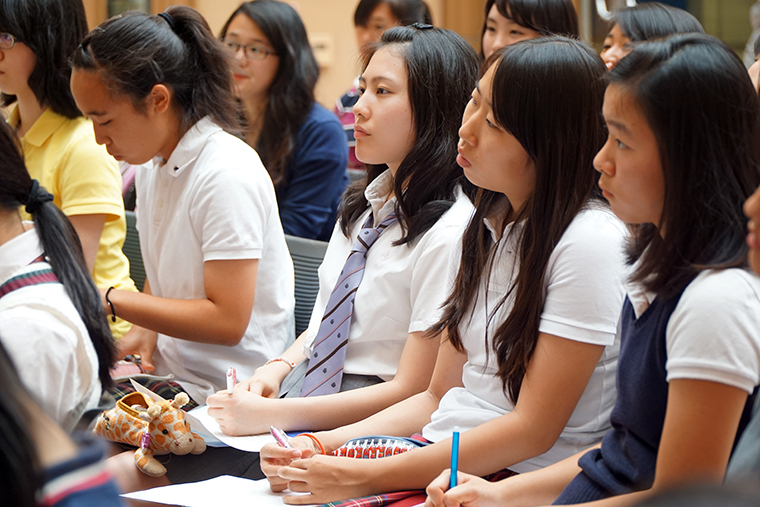
As soon as the boys finished collecting water, they started home, saying “The donkey has a heavy load of water, and I have to go back home quickly because my family is waiting for the water.” Ms. Hirai was both sad and moved by the weight of responsibility that these children, between the age of six and twelve, had to carry on their shoulders.
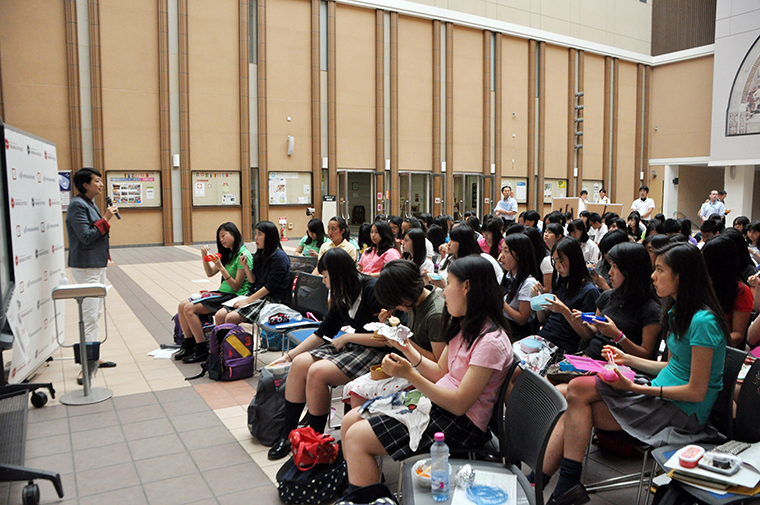
After the 30-year civil war that ended in 2001, Afghanistan has shown some progress with the help of the international community. Yet, terrorism and armed conflict continue.
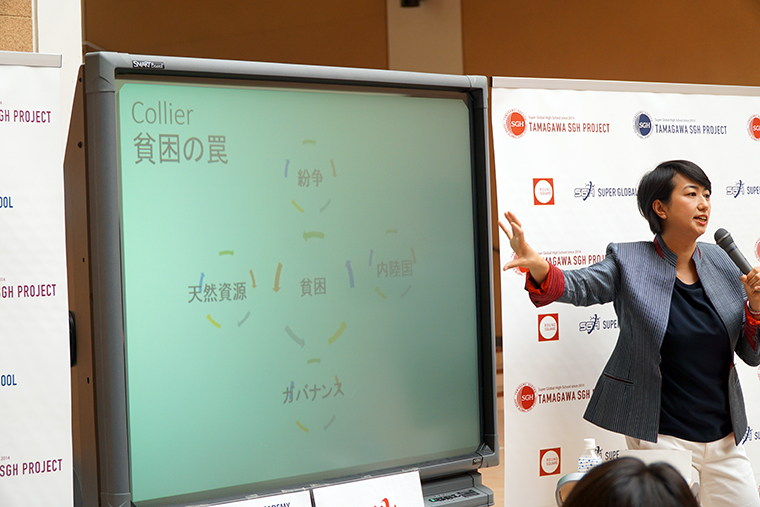
“It’s been nine years since I met these children. They are now about the same age as you are. Do you think that they have hope for a brighter future?” Ms. Hirai asked. She continued, “I doubt that they even were able to continue to junior high school, much less high school. There is a risk that they may now have become embroiled in the conflict.”
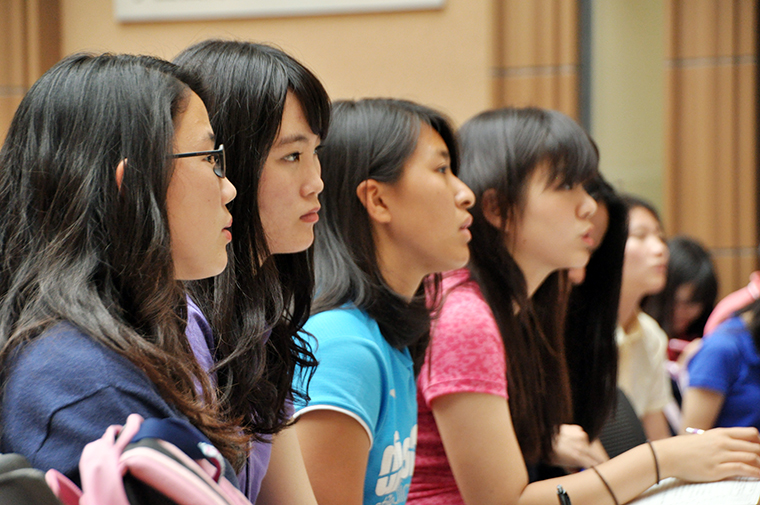
Using graphs and charts, Ms. Hirai then described why it is such a challenge for fragile developing countries to free themselves from a vicious cycle of conflict and poverty. “Children in Afghanistan are forced to live in poverty just because they were born there.”
At the end of the lecture, Ms. Hirai asked, “As same human beings, can we ignore them? I don’t think we should. Even if it is not possible for these children’s generation, we need to think about how we can instill hope into future generations. I hope that the story I told you today will stimulate you into thinking about these issues.”
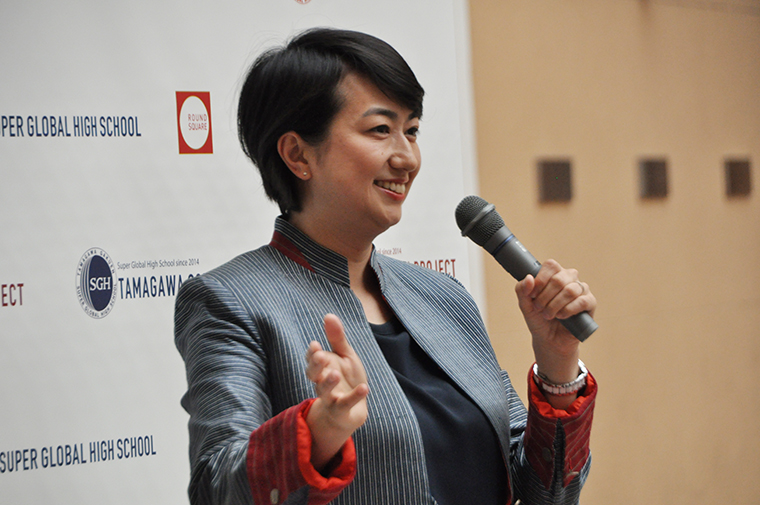
After the lecture, many students gathered around Ms. Hirai and asked her one after another: “What can we do for the needy?” “Would you talk about those who have difficulty getting housing?” “What can be done to improve the social structure?”
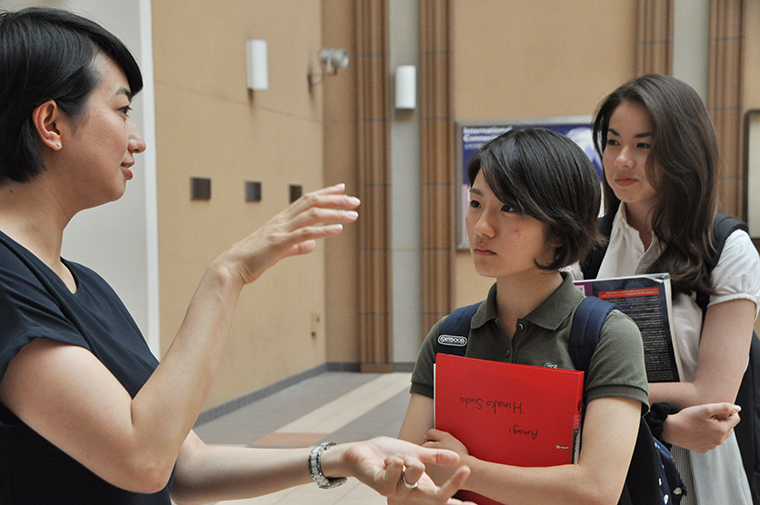
The word “hope” was repeated many times in the lecture. It seems that that the students took on a realization that it is their generation that must take a leading part in the efforts to instill “hope” for the future.
